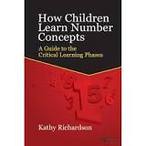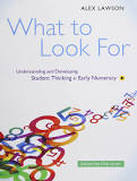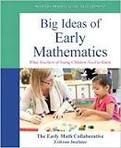What are they?
- are a collection of quick, low-prep 5 - 15 minute activities.
- focus on the big ideas in mathematics through activating the curricular competencies in relation to content knowledge.
- serve to teach, re-teach, reinforce, and enrich.
- can be used as warm ups or mini-lessons with the whole class or small groups of students.
Why are they important?
Using daily Number Talks will assist you in building a mathematical community where students feel safe and are willing to take risks. These daily number sense experiences allow teachers to focus on the core/curricular competencies in a way that is connected to the content. Number routines are responsive to the students' understanding and build deep understanding about numbers and the relationships among them. My personal love for number routines comes from the fact that children are constructing their own knowledge of mathematics. They are sharing the strategies that make the most sense to them and in doing so, they are learning from their peers. Reminds me of a favourite quote from Piaget.
Children have real understanding only of that which they invent themselves, and each time that we try to teach them
too quickly, we keep them from reinventing it themselves. ~ Piaget
too quickly, we keep them from reinventing it themselves. ~ Piaget
Where do I start?
In order to be intentional with your Number Routines, it is important you find out where your students are at. In Primary this is going to take time. There is no simple assessment you can hand out in Early Primary that will provide you with the information you need to know. Instead, you are going to need to invest some time to figure out what your student know and this takes time. A great resource to assist you is the "What Do They Know Assessment". It can be found on both Sandra Ball and Carole Fullerton's websites. Carole's website has the Grades 2 and 2/3 assessments. For those of you Intermediate you could try one of the Surrey District created Grade Specific Assessments.
Once I have an idea where my students are at, I would spend some time reviewing the developmental progression of learning of Mathematics to ensure I knew the key learning phases and next steps for my students. Below are some excellent books that could help you with this.
Click on the images of the books below to be taken to places where the books can be ordered.
Once I have an idea where my students are at, I would spend some time reviewing the developmental progression of learning of Mathematics to ensure I knew the key learning phases and next steps for my students. Below are some excellent books that could help you with this.
Click on the images of the books below to be taken to places where the books can be ordered.



